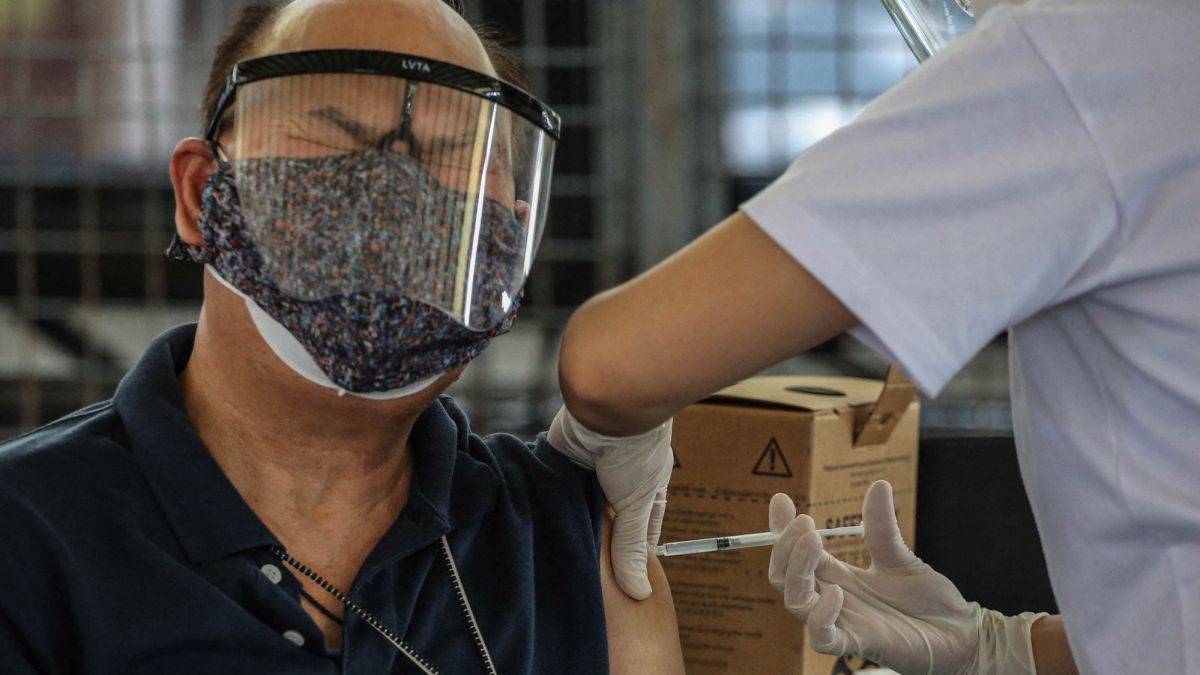A group of German hematologists from the University of Greifswald led by scientist Andreas Greinacher has found a explanation for the thrombotic events related to the AstraZeneca vaccine that forced several countries of the European Union to temporarily suspend the inoculation of the drugs.
As published in the magazine Science, It’s about a Vaccine-Induced Immune Prothrombotic Thrombocytopenia Syndrome (VIPIT). The finding was anticipated when scientists recognized in the symptoms present in the affected remnants of the side effects of heparin.
Apparently, after administration of the vaccine, the reaction of the immune system would cause the number of platelets in the body to drop significantly and the possibility of thrombotic events to rise. However, the possibility of this happening, as pointed out by the scientist and professor of Public Health and Infectious Diseases, Oriol Mitjà, is one in a million.
💉The rare clotting disorder of the AstraZeneca vaccine begins to be elucidated
-occurs in 1 in 1 million
-It would induce an activation of platelets that would form thrombi
-should be identified early and treated with intravenous immunoglobulinsVaccination May Continue
– Oriol Mitjà (@oriolmitja) March 29, 2021
Disease development and treatment
Symptoms usually appear between 4 and 15 days after inoculation. The main ones are headache, neurological problems such as blurred vision, chest pain with shortness of breath, etc. Another aspect to highlight is that the disease develops without any kind of predisposition to it, that is, anyone, regardless of their health, can suffer from it.
Treatment depends on its rapid detection, although it would be based on intravenous immunoglobulins to stop the effect of platelets or, failing that, in anticoagulants that do not have heparin to break up clots.
The German Society for the Study of Thrombosis and Haemostasis has taken the study seriously and issued warnings to their health workers to apply measures regarding the VIPIT.
Discovery
The case that raised the alarm was that of a 49-year-old Austrian nurse who died the day after symptoms began after vaccination. The combination of low blood platelet levels with the development of thrombi was rapidly related to heparin.
However, the deceased nurse had not received heparin, but had received the AstraZeneca vaccine. A situation that had been repeated in eight patients inoculated with the drug, as the Paul Ehrlich Institute, on which depends the safety of medicines and vaccines in Germany, communicated to Dr. Greinacher.
Of the nine patients, four had antibodies against the PF4 protein, which is what represents Heparin-Induced Thrombocytopenia (HIT).
Scientific debate
Although the work is certainly convincing, not all doctors agree with the diagnosis. For example, the hematologist at Johns Hopkins University in New York, Robert Brodsky, believes that this hypothesis does not explain all the cases that have appeared related to the vaccine.
But, the important thing for scientists right now is find out which population groups are most at risk of suffering from this disease and reduce these cases as much as possible, as it would reduce victims. In fact, in countries like Australia, no person with a history of HIT can be vaccinated against coronavirus, while others, such as the Netherlands or the United Kingdom, have incorporated the existence of the VIPIT into their medical practice.

